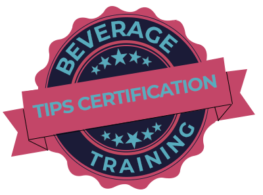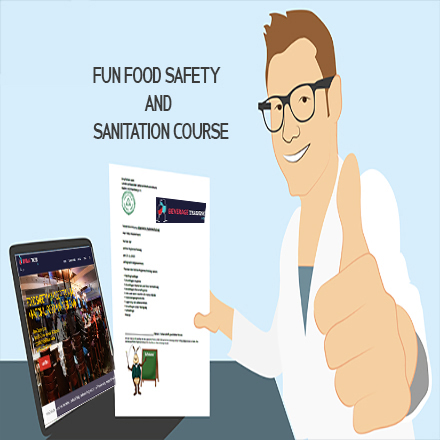Food Protection Manager Certification (ANSI)
Whether it is a restaurant, grocery store, convenience store, school cafeteria, or another setting where food is handled, prepared, or served, the issue of food safety is one that is extremely important. As more and more cases of food poisoning from E. coli to salmonella have made national news, the foodservice industry has put a premium on ensuring those who are responsible for consumable products on a daily basis are properly certified in all aspects of food safety. But to learn everything needed to ensure a safe work environment, it is necessary to pass a food protection course. But to make sure you select the right one for your needs, there are many aspects you should always take into consideration.
Professions Requiring Certification
When it comes to having a food safety manager, it is important people working in a variety of professions have this certification as part of their job training. In general, any person in a managerial capacity who is responsible for overseeing other food and beverage professionals should possess this certification. Thus, it is recommended people in such jobs as Chefs, Restaurant Managers, Produce Managers, Grocery Store Managers, Convenience Store Managers and Supervisors, Food Service Instructors, and other related occupations become certified as Food Safety Manager.
Course Fundamentals
When taking a food protection course, many aspects of the food and beverage industry are covered as they relate to food safety. Some of the most prominent areas include food handling, food preparation, food storage, food temperature controls, pest control, sanitation, personal hygiene, foodborne illnesses, and much more. By having a foundation in these and other important areas of food safety and protection, it will be possible to lessen the risk of an incident or illness related to food poisoning.
Professional Development
By choosing to gain food safety manager certification, those in the food and beverage industry can gain additional skills and training that can help their future development as they progress in their careers. As an example, those in supervisory or mid-level management positions can gain certification that can lead to future promotions or job opportunities.
Employee Training
For supervisors and managers who complete certification in this area, one of the biggest benefits is being able to properly train their employees in the best possible methods of food safety and protection. By being able to teach others the skills needed in proper food preparation, storage, handling, temperature, and other key areas, a business can find itself having few if any incidents that result in serious problems. In addition, a business that has an excellent reputation for serving great food will see its customer base substantially increase, making it well worth the investment to obtain proper certification.
Promoting a Food Safety Culture
Whether required or voluntary, having as many employees as possible certified in food safety and food protection can help a business promote and maintain a culture of food safety at all levels. In doing so, this allows employees to know not only what is expected of them in terms of food safety and protection, but also to monitor one another and point out any potential problems. In many instances, empowering employees in this capacity leads to not only a safer workplace but also one where everyone comes together as a team to make sure the business is run properly.
Industry Compliance and Liability
In many states, it is required by law that managerial and other food and beverage personnel obtain and maintain certification in food safety and protection. In fact, many states now require at least one person certified in this area to be on duty at all times during the normal operating hours of the business. Along with maintaining a safe work environment, this also protects a business from possible liability should an incident take place. By having certified food safety management personnel on duty, the business can greatly reduce the chances a mistake will happen that leads to a foodborne illness or other related issues.
Length of Certification
While there will be costs associated with taking and completing the certification course in food safety and protection, the good news is that once completed it will be valid for five years. Therefore, even if a business has several employees who need to become certified simultaneously, doing so will ensure the business has numerous employees who will constantly be up-to-date on the latest food safety methods.
Convenient Course Completion Options
While years ago a business may have had to rearrange schedules and gather a group of employees together to go sit in a classroom all day for a certification test, which is no longer the case in today’s world. With online certification now available, it has become easier than ever to complete this important food and beverage training. Whether a person completes the test at home or while at work, they can do so much easier than before thanks to the food manager certification practice test. By being able to take a practice test and review areas that may be more difficult or important to a specific job, success rates for certification are always quite high.
Proper Accreditation
In taking this course, you can be sure it will not only contain the most important aspects of food safety and protection but also be properly accredited. In fact, the food protection course offered is accredited by the American National Standards Institute. By being ANSI certified, you can be sure the course was taken and completed always contains the most recent training in food safety and sanitation. Since completing an ANSI-accredited course in this area is required by the majority of states across the nation, you can gain peace of mind knowing the course you and others have completed meet national standards for accreditation.
Building the Brand of a Business
Finally, having employees who are certified in food safety and protection helps a business build its brand, which can be the difference between success and failure for many restaurants. By having employees who know the proper food safety methods, a restaurant can establish an excellent track record for good food, cleanliness, and other related areas important to the reputation of any business. Thus, by signing up for this certification test, you will be taking crucial steps in helping advance your career and keep your company successful for many years.


